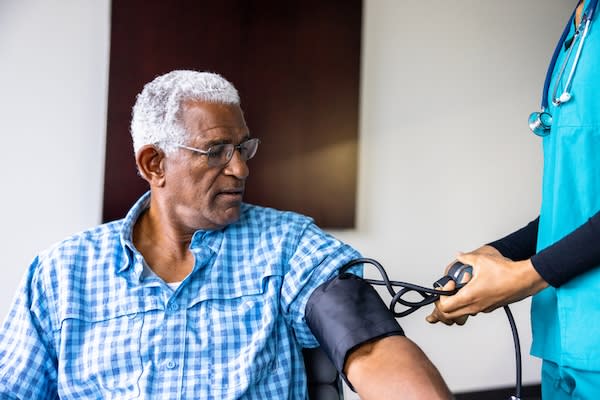What is norovirus? Symptoms, treatment and duration.

[5 MIN READ]
In this article:
-
Norovirus, often called the “stomach flu,” is a very contagious virus that spreads through contact with other people and food.
-
One of the biggest risks of having norovirus is developing dehydration.
-
Because norovirus is a virus, you can’t use antibiotics to treat it. Instead, you need lots of fluids and plenty of rest.
What is norovirus? Symptoms, treatment and duration.
The chances are good that even if you didn’t suffer from norovirus this past winter, you know someone who did. Although the virus itself has been around for a long time, it has gotten a lot of attention this year because outbreaks in the United States have been skyrocketing.
Here, we take a look at exactly what norovirus is, and how you and your family can avoid it.
What is norovirus?
Also known as the “stomach flu,” norovirus is a contagious virus that causes vomiting and diarrhea. There are many different types of norovirus, and even if you develop protection against a certain type, you can still get very sick from another kind.
Norovirus is also the leading cause of foodborne illness in the U.S. — according to current data, it is responsible for 58% of all foodborne illnesses in the country.
Common symptoms of norovirus
The most common symptoms of norovirus include vomiting, nausea, diarrhea and stomach pain. You may also experience fever, headache and body aches, which collectively can make you miserable and unable to function.
Unlike COVID-19, for which symptoms can appear several days after exposure, norovirus symptoms usually show up 12-48 hours after you have been exposed to the virus.
One of the biggest dangers of norovirus is dehydration, or the loss of fluids in your body. This can be a particular problem with young children, older adults and people who already suffer from chronic illnesses and weakened immune systems. The most common symptoms of dehydration include:
- Extreme thirst
- Decreased urination or dark urine
- Dizziness and fatigue
- Feeling faint or confused
- Sunken eyes or cheeks
How contagious is norovirus?
According to Charles Bailey, M.D., a Providence infectious diseases specialist in Orange County, California, norovirus is primarily spread through foods that are prepared by people who have not washed their hands well enough.
“It can also be acquired by someone failing to practice hand hygiene after touching contaminated surfaces or devices used by such infected individuals,” Dr. Bailey says. “It is quite contagious, with as few as 10 virus particles required to spread infection.”
Additionally, norovirus spreads through water by:
- A septic tank leaking into a well, and people then unknowingly drinking the contaminated water from the well
- A person with norovirus vomiting or defecating in a swimming area, then someone else swims in the same water
- A swimming pool not having enough chlorine in its water
If you become ill with norovirus, you can still spread it for up to two weeks after you start feeling better.
How to treat norovirus
Because norovirus is a virus, you can’t use antibiotics to treat it. Instead, says Dr. Bailey, “the focus of treatment is to provide adequate rehydration with products containing glucose and electrolytes (such as non-sugar-free Gatorade) rather than with water alone.”
In addition to drinking fluids, you can also:
- Eat bland foods, such as saltine crackers, toast, pasta and rice.
- Eat probiotic-rich foods such as yogurt. These foods can help restore your gut health.
- Take over-the-counter medications to reduce your fever, nausea and body aches.
If you continue to vomit and have diarrhea, and you can’t keep fluids down, says Dr. Bailey, you should head to your local urgent care or emergency department. You may need intravenous fluids to prevent dehydration.
How long does norovirus last?
“Fortunately, the duration of symptoms of norovirus illness is fairly brief, usually resolving within one to three days,” says Dr. Bailey. “The virus can still be found in the stool for weeks after clinical resolution (and longer in immunocompromised persons). Once the patient is no longer experiencing diarrhea or vomiting, they can be around others, but any family members and visitors should be sure to wash their hands after any contact with the recovering patient or the household environment.”
How to prevent norovirus infections
The best way to prevent norovirus infections is to practice good hand washing hygiene. That includes washing and disinfecting your hands with soap and water for 20 seconds, especially:
- Before eating or preparing food
- After using the toilet or changing diapers
- Before and after caring for someone who is sick with vomiting or diarrhea
- After blowing your nose, coughing or sneezing
- After touching an animal or animal waste
While hand sanitizer is often touted as a good substitute for hand washing, it doesn’t work well against norovirus, according to the Centers for Disease Control and Prevention (CDC).
In addition to washing your hands, you should also be very careful when handling food. Keep raw oysters away from other items in your grocery cart, and cook oysters and other shellfish to an internal temperature of at least 145 F.
It’s true that norovirus outbreaks have increased this year. But when you take the right precautions, you can protect both yourself and your family members from getting sick.
Contributing caregiver
Charles Bailey, M.D., is a Providence infectious diseases specialist in Orange County, California.
Find a doctor
If you are looking for a Providence provider, search for one in our provider directory.
Through Providence ExpressCare Virtual, you can access a full range of health care services from the comfort of your own home. For same day care, check out Providence ExpressCare locations.
Download the Providence app
It’s all in the app: easily stay connected with Providence and your health. With the Providence app, you can schedule appointments, have virtual visits from the comfort of your own home, get health recommendations personalized for you, access your health records and so much more. Learn more and download the app.
Related resources
Viral gastroenteritis is not the flu
Stomach bug or food poisoning?
How to stay healthy at home with Providence virtual care
This information is not intended as a substitute for professional medical care. Always follow your health care professional’s instructions.



